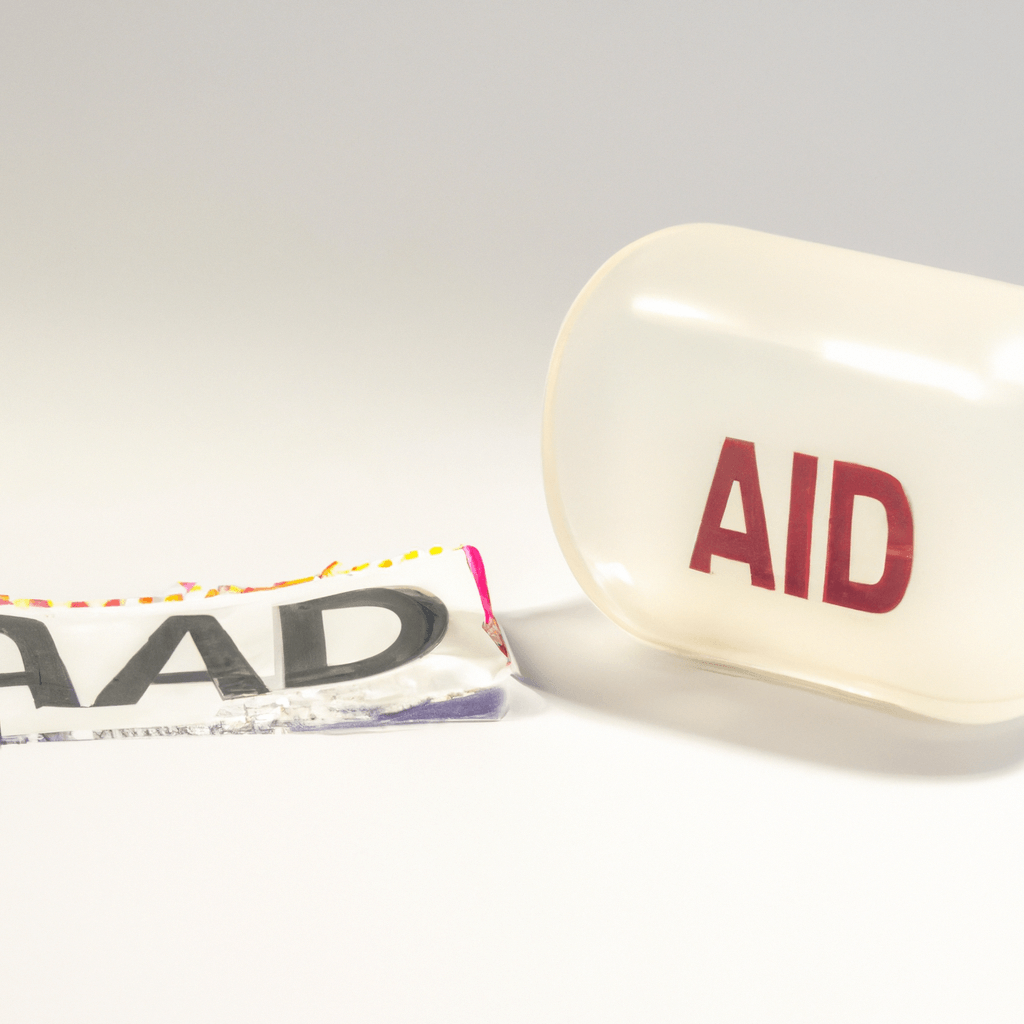Can dogs get aids
This is a question many pet owners may ask themselves when trying to keep their pet safe and healthy. Fortunately, the answer is no, dogs cannot get AIDS. However, they can be infected with a virus that is similar to the human virus, known as canine immunodeficiency virus (CIV).
This virus is spread through contact with an infected animal’s bodily fluids, such as blood, saliva, and urine. In this article, we will discuss the similarities and differences between human AIDS and canine immunodeficiency virus, and how pet owners can keep their dogs safe from this virus.
How Can Dogs Contract Aids?
Dogs can’t contract the virus that causes HIV/AIDS in humans, but they can contract a similar virus, called Canine Immunodeficiency Virus (CIV). This virus can cause a wide range of symptoms in affected dogs, including weight loss, skin conditions, eye and nose discharge, diarrhea, anemia, decreased appetite, and poor coat condition.
CIV is usually spread through contact with infected saliva or other body secretions, such as the saliva from a bite wound or from sniffing another dog’s rear end. It can also be spread through contaminated objects, such as a water bowl or food dish that an infected dog has used.
The best way to protect your dog from CIV is to make sure they are up-to-date with their vaccinations and to avoid contact with other dogs that may be infected. It’s also important to avoid contact with any dogs you don’t know, as they may be carrying the virus. If your dog does come into contact with another dog that is infected, it’s important to take them to the vet as soon as possible to get tested and treated if necessary.
What Are the Symptoms of Aids in Dogs?
The symptoms of AIDS in dogs can vary greatly, but some of the most common signs include: – Weight loss – Poor coat condition – Lack of energy – Persistent coughing – Skin infections – Recurrent diarrhea – Vomiting – Enlarged lymph nodes – Fever – Seizures – Difficulty breathing If you notice any of these symptoms in your dog, it’s important to get them checked out by a veterinarian. Early detection and treatment is key to preventing the progression of this disease.
Can Dog Vaccines Protect Against Aids?
No, dog vaccines cannot protect against AIDS. AIDS (Acquired Immune Deficiency Syndrome) is a human condition caused by the HIV virus (Human Immunodeficiency Virus). AIDS affects the immune system, making it unable to fight off infections and diseases. Dog vaccines are designed to protect against canine diseases and cannot provide protection against human diseases such as AIDS.
How Can Pet Owners Protect Their Dogs From Aids?
Pet owners can protect their dogs from AIDS (acute immunodeficiency syndrome) by following a few simple steps. First, get your dog vaccinated. Vaccinating your dog is the most effective way to protect them from AIDS.
Ask your veterinarian for advice about which vaccines can help your dog stay healthy. Second, keep your dog away from other animals that may be infected. If your dog has contact with an animal that has AIDS, it may become infected as well.
Third, keep your dog away from areas where it may come into contact with other animals that may be infected. If your dog is outdoors, make sure they are not in contact with other animals that may be infected. Fourth, keep your dog clean and groomed.
Regular bathing and brushing can help to keep your dog healthy and free of parasites and infections. Finally, ask your vet for regular check-ups. Regular check-ups can help your vet identify any health problems early and prevent them from becoming more serious. By taking these steps, pet owners can help ensure that their beloved furry friend stays safe and healthy.
What Are the Long-Term Effects of Aids on Dogs?
The long-term effects of canine AIDS can be devastating for both the dog and its owner. Canine AIDS, also known as Canine Immunodeficiency Virus (CAIV), is a viral infection that attacks a dog’s immune system. This virus is spread through contact with bodily fluids, such as saliva, urine, and blood, and can be passed from mother to puppy, or from one dog to another.
Over time, the presence of the virus weakens the dog’s immune system, making them more susceptible to other illnesses, infections, and diseases. One of the long-term effects of canine AIDS is an increased risk of infection.
Because the virus weakens the dog’s immune system, it is much easier for other illnesses and infections to take hold. These infections can range from mild, such as a skin rash, to severe, such as pneumonia. If left untreated, these infections can lead to organ failure, which can be fatal.
Another long-term effect of canine AIDS is anemia. When a dog’s immune system is weakened, it can no longer produce enough red blood cells, leading to a decrease in oxygen in the body. This can lead to fatigue, weakness, and in severe cases, organ failure.
The long-term effects of canine AIDS also include an increased risk of cancer. Because the virus weakens the dog’s immune system, it is unable to fight off cancer cells, leading to an increased risk of developing cancer.
Finally, the long-term effects of canine AIDS can lead to a decrease in the quality of life for the dog. As the virus progresses, the dog may become weak, lethargic, and lacking in appetite. In addition, the risk of infection and other illnesses becomes greater, leading to a decrease in the dog’s overall health.
The long-term effects of canine AIDS can be devastating, but with proper care, treatment, and management, it is possible to extend a dog’s life and improve its quality of life. If your dog has been diagnosed with canine AIDS, it is important to speak to your veterinarian about the best course of action for your pet.
How Can Dogs Be Tested for Aids?
Unfortunately, dogs can’t be tested for HIV/AIDS as humans can. However, they can be tested for other types of canine immunodeficiency viruses (CIV), which can cause similar symptoms to HIV/AIDS in humans. If your vet suspects your dog might have CIV, they will likely perform a blood test to check for antibodies that indicate infection.
You can also ask for a PCR test, which looks for the virus itself instead of just the antibodies. This can be more accurate, as sometimes the antibodies can remain in the blood even after the virus has been cleared from the body.
If you think your dog may have been exposed to CIV, it’s important to speak to your vet about testing and treatment options. It’s also important to practice good hygiene and take steps to reduce the risk of infection, such as avoiding contact with other animals that could be carrying the virus.
How is Aids Diagnosed and Treated in Dogs?
Aids in dogs is diagnosed through a combination of tests, including a physical exam, blood work, and urine tests. The physical exam looks for swollen lymph nodes and other signs of illness. Blood work can look for antibodies to the virus, while a urine test can help rule out other conditions. Once a diagnosis of canine AIDS is made, the goal of treatment is to improve the quality of life and keep the disease in check. Treatment depends on the severity of the individual case and includes
- Antiretroviral drugs reduce the virus’s ability to replicate and cause further damage.
- Pain medications to manage pain and other symptoms.
- Antibiotics to treat bacterial infections.
- Nutritional support to help maintain a healthy weight.
- Vaccines to protect against other infections.
- Regular monitoring to check for any signs of progression. It’s important to get regular check-ups with your veterinarian to monitor your dog’s condition and adjust treatment as needed. With proper care, dogs with AIDS can live long and happy life.
What Is the Prognosis for Dogs With Aids?
The prognosis for dogs with AIDS is not great. This is because there is no cure for the virus, and it is often fatal. The virus can cause a wide range of symptoms, including weight loss, decreased appetite, skin lesions, and respiratory problems.
Treatment focuses on managing the symptoms, but ultimately, the virus will progress and may prove to be fatal. It is important to note that not all dogs with AIDS will die from it. Some may live longer if they receive prompt and ongoing treatment. It is important to get your dog tested if you suspect they may have the virus so that they can receive the proper care and treatment.
In conclusion, dogs cannot get HIV/AIDS. They have their own set of viruses and diseases that are unique to canines and are not at risk of the same illnesses as humans. While there are some viruses that can be passed from humans to animals, such as rabies, canine HIV is not one of them. Therefore, it is safe to say that dogs cannot get HIV/AIDS.




